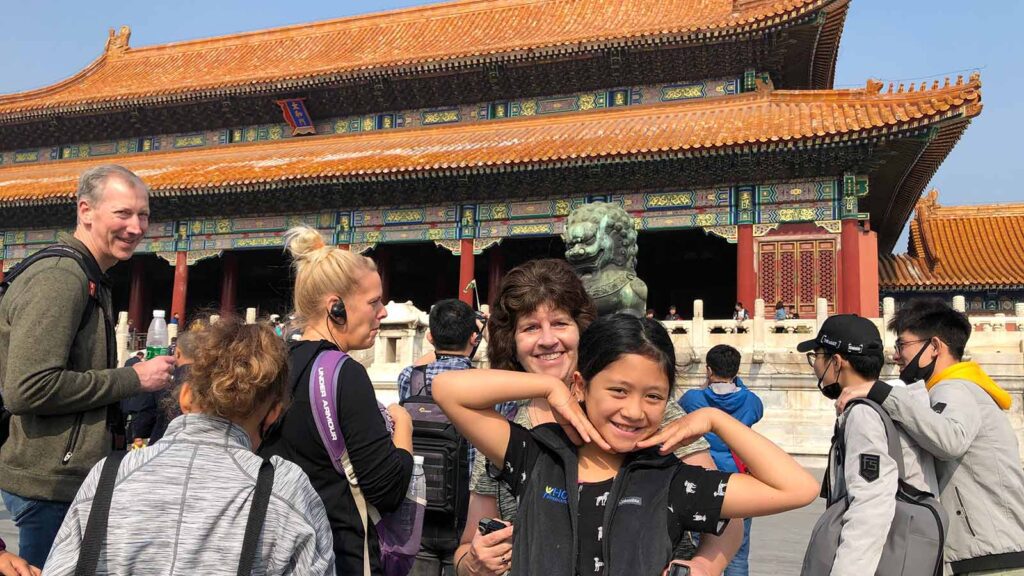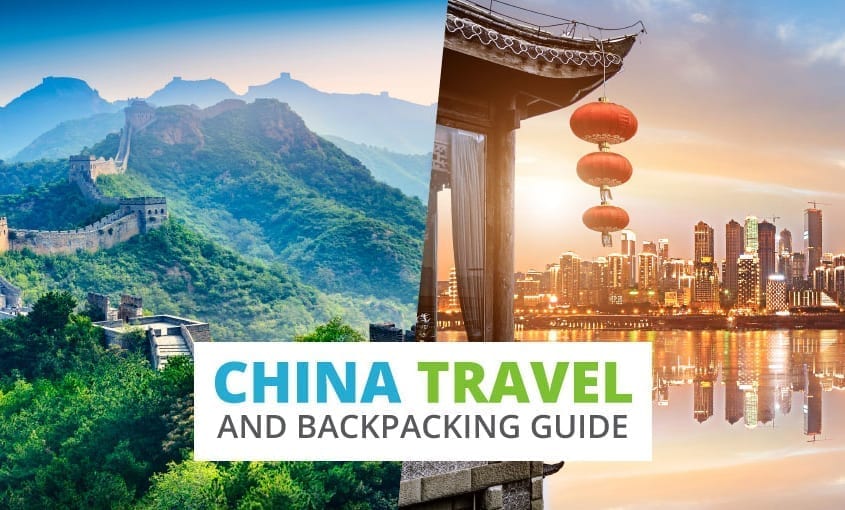20 Best Reasons For Deciding On China Tour Websites
20 Best Reasons For Deciding On China Tour Websites
Blog Article
Top 10 Tips To Shopping For Regional Specialties In China
1. Research before you goTip: Know what each region is known for. Suzhou, Jingdezhen and Tibet are all well-known for their specific items.
Pro: It helps you concentrate your shopping and stop wasting time.
Con: You must be prepared and knowledgeable of the highlights of the region.
2. Shop Local to ensure Authenticity
To ensure authenticity and quality Buy products directly from the original point.
Pro: Lowers the risk of copyright products and also helps local artisans.
Con: Requires travel into rural regions or lesser-known tourist destinations.
3. Take a look at the Artists' Workshops.
Find artisan shops and small hubs rather than generic stores.
Pro: You'll have more understanding of the craft and you can purchase directly from the creators.
Con: Products created by hand can be expensive and difficult to bargain.
4. Take Cultural Meanings into Consideration
Find out the story of your products like cloisonnes, jade sculptures, or calligraphy.
Pros: You will appreciate your purchases more, and they will have a a deeper significance.
Con: It might take some time to understand cultural nuances.
5. Be sure to check the quality of your food with care
Tip: Examine the craftsmanship of things like tea, embroidery or ceramics to make sure they are up to your standards.
Pro: Avoids disappointment by making sure you receive what you spend for.
Cons: Requires expert knowledge or advice to identify top-quality products.
6. Beware the mass-produced goods
Look for unique, handmade items rather than mass-produced replicas.
Pro: Make sure you bring home a unique and precious souvenir.
Con: Genuine craftsmanship tends to cost more and are harder-to-find.
7. Compare Prices
Check several stores or stalls to compare prices on the same item.
You can determine acceptable price points to avoid paying excessively.
Cons: It is long-winded to look for big markets.
8. Purchase tea from trusted sellers
Tip: Visit teahouses in Hangzhou and Fujian for Longjing tea (Dragon Well tea) or Tieguanyin.
Pro: It guarantees quality and authenticity.
Con: Teas of premium quality can be expensive and hard to confirm for newcomers.
9. Local Customs Understanding them
In certain regions there are certain regions where sellers will expect to negotiate.
Pro: Provides a stimulating cultural dimension to shopping.
A misunderstood customs system could result in uncomfortable interactions.
10. Pack judiciously
Tips: Think about how you'll transport the delicate or bulky regional foodstuffs such as silk or ceramics home.
Pro: This service guarantees that your products arrive in good condition.
Cons: It can increase logistical problems and cost to shipping.
Pros of shopping for regional Specialties
Unique Souvenirs. Regional specialties provide unique items that are not sold elsewhere.
Cultural Immersion. The purchase of local foods can help you understand the area's history and craftsmanship.
Support Local Artisans by purchasing directly from them. This supports local economies.
The cons of shopping regional specialties
Security Concerns: The risk of purchasing counterfeits or inferior versions.
Moving fragile or heavy items isn't easy.
Locally-sourced products, especially those made by hand, aren't cheap.
These guidelines will enable you to purchase memorable items when you visit China. Read the best learn about this historical site for site advice including zhangjiajie tour maps, eating in urumqi, south luogu laneone of the oldest neighborhoods in beijing, chinaexpeditiontours.comattractions, jinan transportation, shopping in macau, eating in dunhuang, splendid china tour.html, entertainment in beijing, temple of confucius one of the three largest ancient architectural complexes and more.
Top 10 Tips To Avoid Fees, Photography Rules And The Visit To The Temples In China
1. It is possible to plan your budget by looking up ticket prices before you go to the venue. Budget your trip by planning ahead.
Pro: It helps you to avoid surprises by assisting you to calculate the exact amount of cash required for digital transactions or cash.
Con: Unexpected extra costs, such as exhibition fees, may arise.
2. Bring cash or a digital Payment
Tips: Some temples do not accept credit cards or other widely used Chinese methods of payment, such as WeChat Pay.
Pro: No delay in payments.
Cons: There aren't many choices for those unfamiliar with digital payments.
3. Look for signs that reference photography.
You should always verify for notices on the walls that indicate whether or not you're allowed to take photos. There are many temples that prohibit photography in the sacred artifacts' sanctuaries or inside the sanctuaries.
Pro: It deters accidental infractions or violations of rules.
Cons: The rules could differ between different areas of the temple. This is why it's important to pay attention.
4. Avoid Flash Photography
Tips: Even in places where photography is allowed, avoid using flash, as it can damage artwork or disturb worshippers.
Pro: Protects the temple's environment and art.
Cons: Poor lighting could result in photos that aren't ideal.
5. Respect the privacy of worshippers
If you don't have permission be careful not to take photos of religious ceremonies.
Pro: Shows the sensitivity to culture and respect for personal space.
Con: May restrict your ability to capture the atmosphere of the temple completely.
6. Follow Drone Restrictions
Tips: Drones are generally forbidden near temples. Check local regulations if you intend to use a drone for aerial photography.
Pro: You can avoid fines and confiscation of drones.
Cons: It reduces the possibility of capturing unique angles.
7. Prepare yourself for additional fees
TIP: Some temples will charge extra for permits if your equipment is professional, like DSLRs as well as tripods.
Pro: This assures that photos are recorded in top-quality and legally.
Cons: Added to trip cost
8. Dress sensually
It is important to dress appropriately when visiting temples. If you don't, you may be denied access or banned to certain areas.
Pro: It displays respect for the environment of religion and allows you to blend with the crowd.
Con: May require extra preparation, especially in hot weather.
9. Avoid crowds when taking photos
Tips Beware of crowds by going early in the morning or later in the afternoon. It will be easier to take unobstructed pictures.
Pro: Improves the quality of your experience as well as photographs.
Con: This could need you to change your schedule. It is not always feasible.
10. When Unsure, You Should Get Permission
Check with temple staff or signs on rules if you are unsure.
Pro: It can help you to avoid accidentally violating the rules.
Con: Language barriers might make communication difficult.
Follow Fees and Photographic Rules
Respect for Cultural Values: Be respectful of local customs, religious practices and other aspects of culture.
Artifact Protection: Guard fragile artworks and structures from destruction.
Positive Experiences Avoiding confrontations with temple staff as well as worshippers.
Legal Compliance: Guards you against fines or penalties if you break photography rules.
Cons of Following Fees and Photographic Rules
Increased Costs: Additional fees for entry or photography permit could add up.
Restrictions on Creativity can prevent creating the perfect image.
Language Barriers - Difficulty in understanding signage or talking to local staff.
Time-consuming research: Preparing ahead takes extra effort and time.
The observance of photography rules and fees will ensure that you have an pleasant and enjoyable experiences in China's beautiful temples. They will also be protected in their cultural, spiritual, and historic integrity. Follow the top visit this must-see attraction for site tips including a wonderful landscape painting lijiang river, temple of confucius one of the three largest ancient architectural complexes, four gentlemen in chinese culture, chaotianmen dock%EF%BC%8C a major water transportation hub in chongqing, shopping in kashgar, chinaexpeditiontours.comattractions, wuzhi mountain wuzhi shan five finger mountain, guanlin temple, eating in dunhuang, litchi park and more.